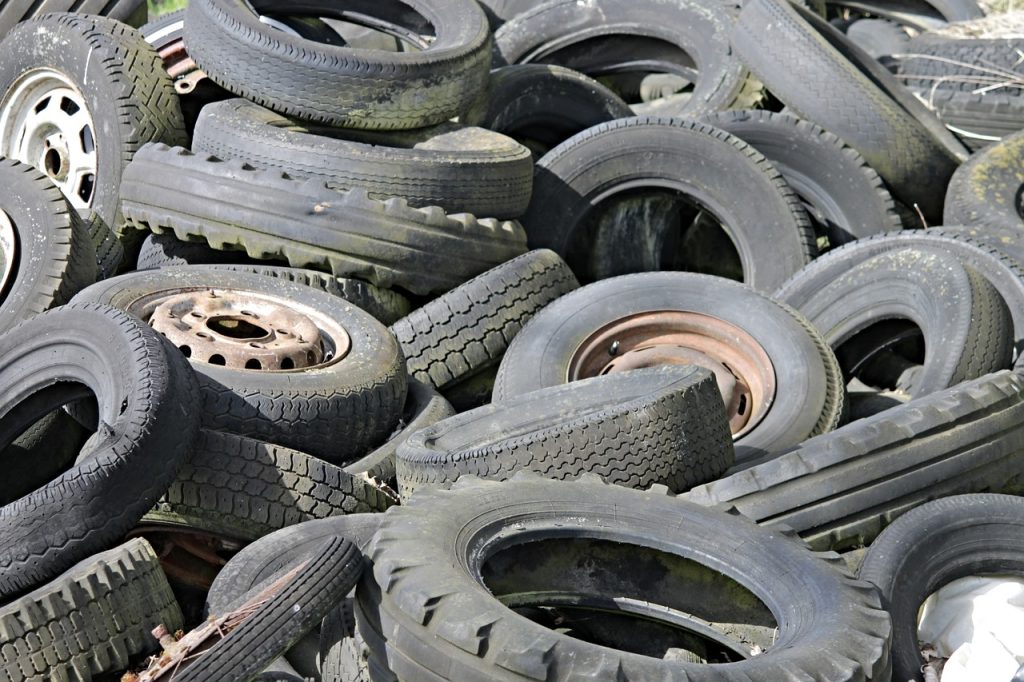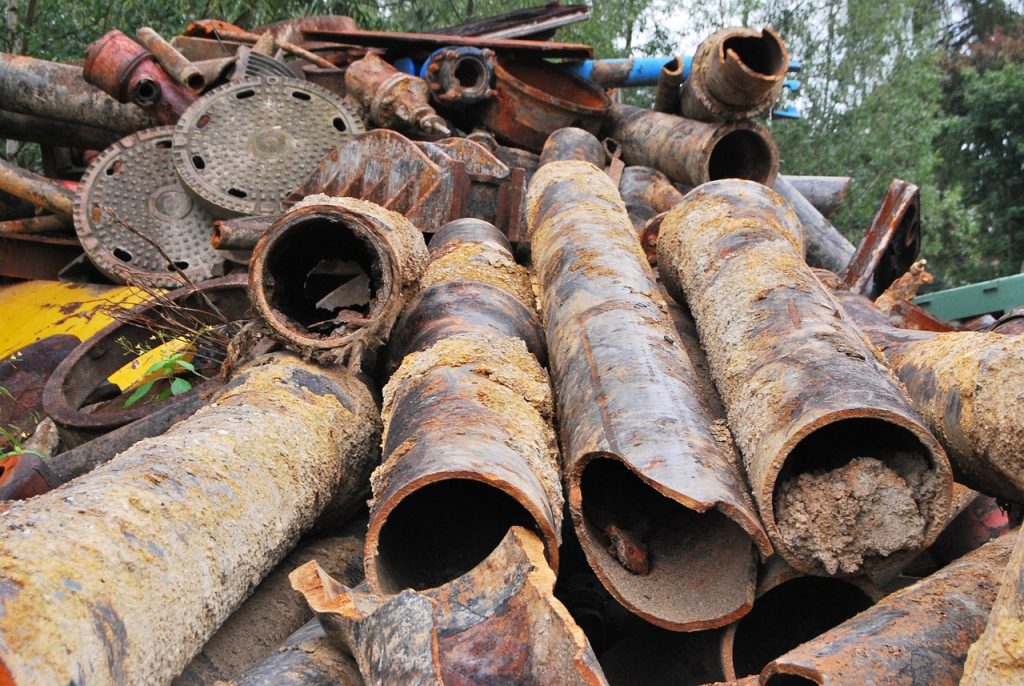- Collect used tires from bikes, cars, and other vehicles.
- Take the tires to your local recycling center.
- At the center, remove steel and other foreign elements from the tires.
- Shred the remaining rubber into small granules.
- Repurpose the rubber granules into products like rubberized asphalt, playground flooring, and more.
- If a tire is too worn out to be recycled, ensure it’s disposed of responsibly to avoid environmental harm.
Guide to Tire Recycling: Dispose and Recycle Tires at your Local Recycling Center
When it comes to tire recycling, there’s much more to it than simply tossing old tires in a bin. It’s about how to properly dispose and recycle tires: from bikes to cars and everything in between. Tire disposal is a serious issue with significant environmental impact, but there’s good news! You can positively contribute to tire recycling efforts by taking your used tires to your local recycling center.
Recycling centers are equipped to recycle tires in an environmentally friendly manner. They take these old, worn-out tires and convert them into useful products. Imagine, your car’s old tires transformed into rubber mulch for playgrounds or into fuel for industries! Yes, that’s the power of tire recycling. This is why it’s essential to properly dispose of your tires at these centers, ensuring they get recycled, not dumped in a landfill.
Tire recycling not only benefits the environment; it also eliminates the potential danger of tires left in a garage or yard. Disposing of and recycling tires is a responsibility we all share.
So next time you’re ready to get rid of your old tires, don’t just set them out with the trash for disposal. Instead, take a moment, consider tire recycling, and take them to your local recycling center. It’s easy, it’s responsible, and it’s the right thing to do for our planet’s future.
Practical Rubber Management: Ways to Recycle Waste Tires and the Importance of Tire Disposal
Waste tires, if not properly disposed of, can become a serious environmental problem. However, with practical rubber management strategizes, we can not only dispose of these waste tires in a responsible manner, but also recycle them for practical use. This process, known as tire recycling, has multiple benefits for the environment and industry alike, making it an essential practice for managing old and used tires.
Tire recycling allows waste tires to be converted into recycled rubber — a versatile material with numerous applications. From playgrounds to rubber mats and even asphalt, recycled rubber is utilized in many different ways. Moreover, as more of us jump on the recycling bandwagon, we are helping to reduce the number of used tires that end up in our landfills and contribute to pollution.
Recycling tires is a simple process. Locations are available where you can dispose of your used tires and have them recycled. The process revolves around removing the steel components within the tire, shredding the remaining rubber into small granules, and these granules are then ready for reuse. It’s important to note, however, that not all tires can be recycled — some are simply too worn out. Therefore, it’s critical to dispose of waste tires properly, even if they can’t be recycled.
In the end, tire recycling is an efficient and environmentally friendly solution for handling waste tires. By choosing to recycle your tires, you assist in waste reduction, conserve resources, and contribute to a cleaner, greener planet.
Understanding Tire Recycling: Turning Old Tires into New Opportunities
Tire recycling isn’t just about getting rid of waste. It’s about turning old tires into new opportunities. Yeah, you heard it right. Tires, tires, tires – from bikes, cars, and everything in between can be recycled. Instead of ending up in landfills, they can be turned into something useful. Through a process known as tire recycling, old tires are transformed into products like rubberized asphalt, playground flooring, and more. This method of waste management helps to keep our environment clean by reducing waste.
As strange as it sounds, tires are actually a precious resource. They’re made from rubber, a non-renewable resource. When tires reach the end of their life, they’re often dumped in landfills, discarded as waste. However, by reprocessing them, we can repurpose them rather than exacerbating landfill issues. This process not only keeps millions of tires out of landfills but also reduces rubber extraction, therefore being an excellent eco-friendly solution.
Why aren’t we recycle them more? You might be wondering. Well, the answer is complicated. There’re numerous aspects of the process to consider. Not all tires are created equal and some pose environmental issues. However, with advancements in recycling technologies, the process, is becoming increasingly efficient. The potentials and benefits of recycle tires are far-reaching and can help to create a greener future. So remember, don’t just dispose of your old tires. Recycle them. Make use of your local recycling center and contribute to a circular economy, turning your old tires into new opportunities.
From Landfills to Playgrounds: The Journey of Repurposed Tires and the Need for Responsible Disposal
Given the environmental concerns surrounding poor disposal methods, old tires need not end up in landfills anymore. Recycle tires instead of dumping, as recycled tires find a lot of vital uses. From playgrounds wrapped in vibrant colors to rubber products, recycling gives tires a second lease on life. The process helps avoid waste, turning scrap into treasured items. Tire recycling has, thus, transformed the journey of tires, from landfills to products of everyday use. Recycle them, not only bikes and car tires but every tire you can lay hands on.
The tire recycling process begins with the removal of steel and other foreign elements, leaving only the rubber. With technologies in place, this rubber is then processed further in an environmentally friendly manner. The rubber doesn’t just vanish as waste; it gets shaped into various products, reducing the need for virgin rubber. Recycled rubber products have varying purposes that are resourceful and help prevent nutrients from going to waste.
In the face of tire wastage, the need arises for responsible tire disposal methods. Recycle tires, for instance. By doing so, we not only strive for a cleaner and healthier environment but also contribute to the production of various rubber products. Tire recycling isn’t just about reducing waste; it opens up a world of opportunities and fills the marketplace with recycled goods. The cycle of recycling scrap tires into valuable products necessitates tire recycling at every opportunity.




